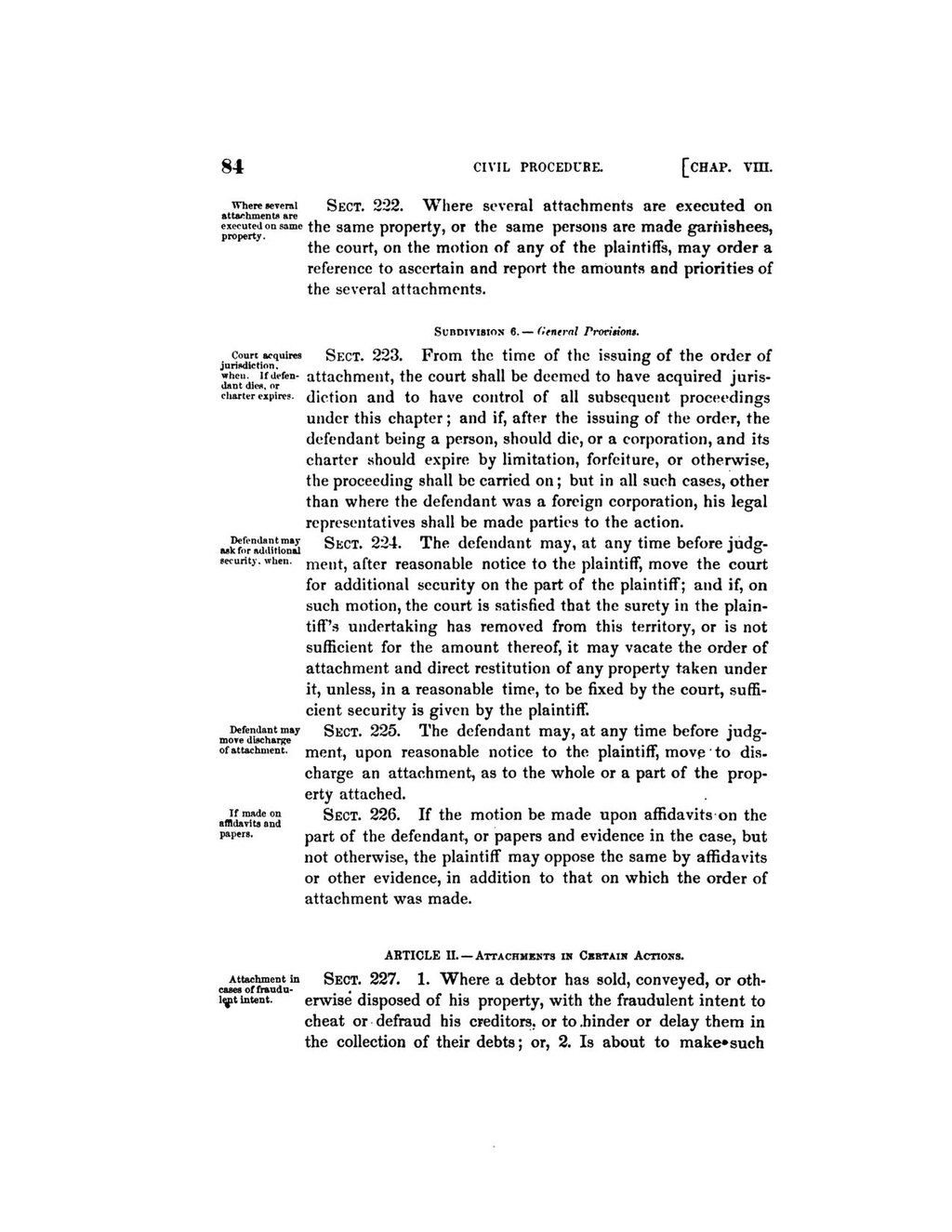Where several attachments are executed on same property.Sect. 222. Where several attachments are executed on the same property, or the same persons are made garnishees, the court, on the motion of any of the plaintiffs, may order a reference to ascertain and report the amounts and priorities of the several attachments.
Subdivision 6.—General Provisions.
Court acquires jurisdiction, when. If defendant dies, or charter expires.Sect. 223. From the time of the issuing of the order of attachment, the court shall be deemed to have acquired jurisdiction and to have control of all subsequent proceedings under this chapter; and if, after the issuing of the order, the defendant being a person, should die, or a corporation, and its charter should expire by limitation, forfeiture, or otherwise, the proceeding shall be carried on; but in all such cases, other than where the defendant was a foreign corporation, his legal representatives shall be made parties to the action.
Defendant may ask for additional security, when.Sect. 224. The defendant may, at any time before judgment, after reasonable notice to the plaintiff, move the court for additional security on the part of the plaintiff; and if, on such motion, the court is satisfied that the surety in the plaintiff's undertaking has removed from this territory, or is not sufficient for the amount thereof, it may vacate the order of attachment and direct restitution of any property taken under it, unless, in a reasonable time, to be fixed by the court, sufficient security is given by the plaintiff.
Defendant may move discharge of attachment.Sect. 225. The defendant may, at any time before judgment, upon reasonable notice to the plaintiff, move to discharge an attachment, as to the whole or a part of the property attached.
If made on affidavits and papers.Sect. 226. If the motion be made upon affidavits on the part of the defendant, or papers and evidence in the case, but not otherwise, the plaintiff may oppose the same by affidavits or other evidence, in addition to that on which the order of attachment was made.
ARTICLE II.—Attachment in Certain Actions.
